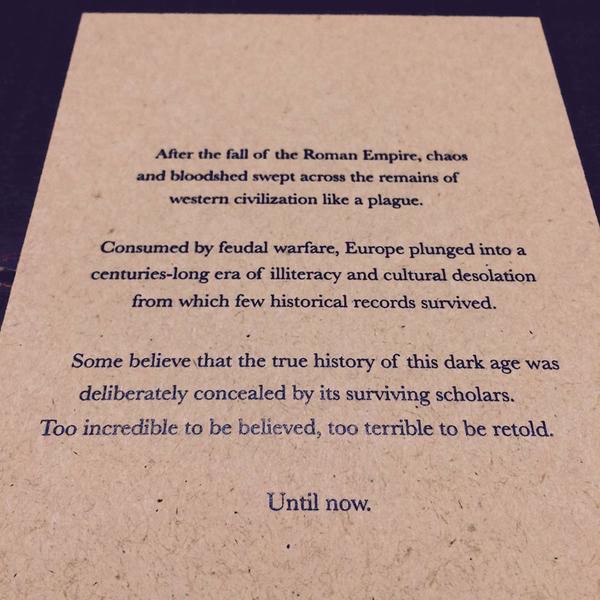Interview: Gary Whitta Talks 'Book Of Eli,' 'After Earth' And His Novel 'Abomination'
To promote the pre-order of his first novel, Abomination, screenwriter Gary Whitta (Book of Eli, After Earth) sat down with us for an extensive interview spanning his career thus far. Over the course of this week we will be posting the parts of this interview broken up into digestible thematic bites — we're calling it "/Film's Week Of Whitta".
If you missed it, Gary Whitta talked about Star Wars on Monday. On Tuesday he talked about his journey from video game journalist to screenwriter and the post-apocalyptic Oliver Twist script that got him into the business. Today we return with the third installment, which focuses on Whitta talking about his biggest produced film projects, Book of Eli and After Earth, as well as his upcoming novel Abomination. Read the next installment of the Gary Whitta interview after the jump.
Gary Whitta Interview Part 3: His Produced Film Career and Book
Note: The following interview has been split up into five parts. Some questions are being presented out of chronological order so that each post tackles a thematic topic.
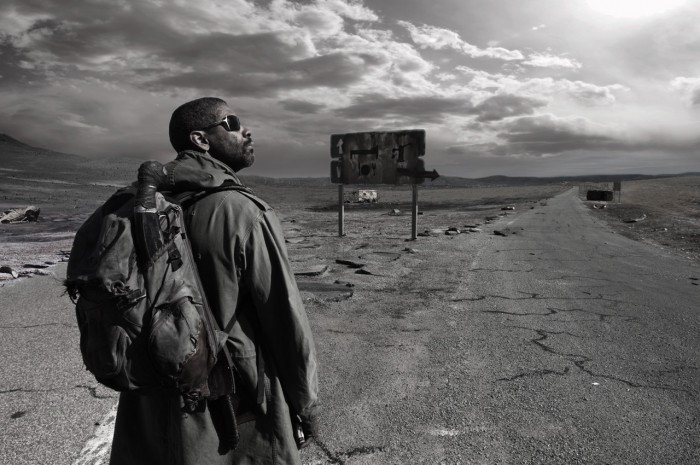 How did the Book of Eli come about?
How did the Book of Eli come about?
Basically I wanted to do something akin to the old samurai and western movies I grew up watching. I love that classic notion of the old wandering nomadic hero with an air of mystery, whether it be Zatoichi or The Man With No Name or even Obi-Wan Kenobi – there's definitely a little birt of Jedi influence in Eli, now I think about it, considering that he is kind of a monastic man of faith who's also badass with a sword. So it started out as just wanting to tell my version of that character and it had fairly pulpy roots to begin with, but the idea of giving it a religious theme and trying to make it a conversation about religious faith was what made it feel to me like it had real substance and validity as a movie.
I was fully aware that an original, violent, and dark film about an old man chopping off heads and quoting the bible might not be the easiest thing to sell to Hollywood but I was so enamored with the idea that the only way to get it out of my head was to write it out. I wrote the first draft in a six-day marathon of 20-hour writing days, then sent it to my reps who weren't quite sure what to make of it but did their best to try to sell it. We go interest from Joel Silver, who brought it to Warner Bros, who bought it. That was my first big studio script sale, in early 2007. The movie went through a lot of development, both before and after Denzel came on, and eventually it looked like it wasn't going to happen because when it came to the final greenlight Warner Bros said no. It was Alcon Entertainment who came in and saved it and produced it essentially as an independent film.
And around this time you were also working on The Monkey Project. Will we ever see it?
I very much doubt it, that was just tinkering around. Maybe as a comic one day?
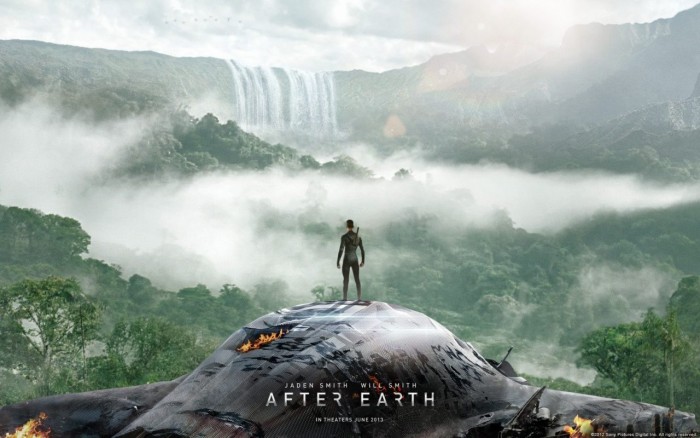 How did you get involved in After Earth?
How did you get involved in After Earth?
I got a call from my agent asking me if I was interested in writing a movie for Will Smith based on an original idea of his. There was a little synopsis attached, basically a concept of a man and his son stranded on Earth centuries after it had become an abandoned world, and I thought it was really interesting. You can immediately see the potential for some really cool sci-fi worldbuilding with an idea like that. So I pitched Will a fleshed-out version of that idea and he hired me to write it.
How involved was Will Smith in the story development process?
Very closely. I sat with him for a few hours a day for a few weeks and we developed the story together. The idea was his baby so he was really passionate about it. Once everyone was happy with the story I went away and wrote a first draft, then started meeting with Will again after that to talk about his notes on the next draft. Somewhere during that process M. Night came aboard as director and from then on I worked with him to develop the next draft of the script, writing it together.
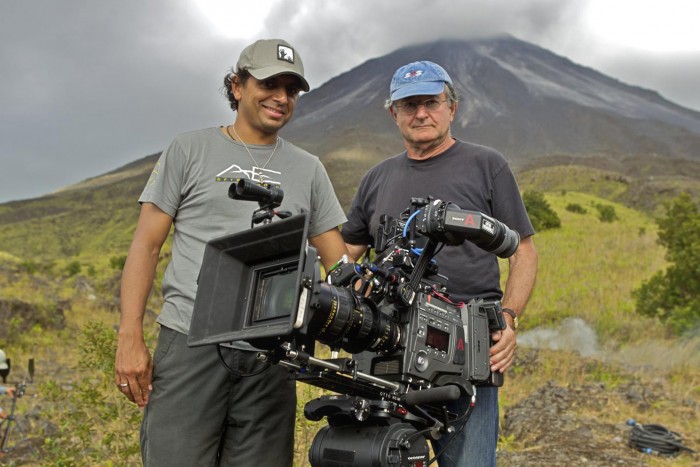 M. Night Shyamalan worked with you on the screenplay and got a co-writing credit, so how involved is he in the writing process? How does that work? Was it you guys in a room together writing it or going back and fourth over scenes over email?
M. Night Shyamalan worked with you on the screenplay and got a co-writing credit, so how involved is he in the writing process? How does that work? Was it you guys in a room together writing it or going back and fourth over scenes over email?
I would fly out to his farmhouse in Philadelphia where he works and go in every day and work with him. He wrote pages and I wrote pages and we'd read each other's pages and talk about them. That was the first time either of us had co-written with another person so I was a little apprehensive going in but I thoroughly enjoyed working with him, he's one of the most personable and accomodating people I've worked with. Once our second draft was done Night took over the writing himself, which I think is pretty standard for a writer/director, and it went through many more drafts after that.
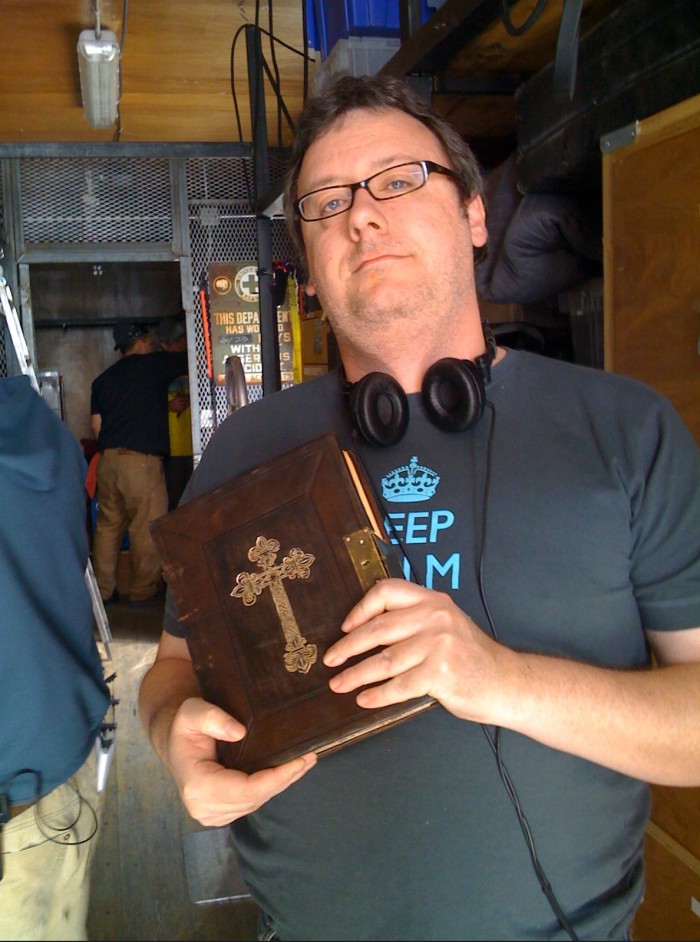 I love the idea of merged cultures and worlds you mention for your Akira take. We saw that recently in Disney's Big Hero 6 with San Fransokyo, and also in the new Amazon pilot that adapts Philip K Dick's The Man in the High Castle. People seem to peg you as a screenwriter who develops geek film projects, but I've always seen you as a world builder. You definitely did that with Eli, and After Earth had something like a 300-page bible that filled out the world seen in the film. How did that develop?
I love the idea of merged cultures and worlds you mention for your Akira take. We saw that recently in Disney's Big Hero 6 with San Fransokyo, and also in the new Amazon pilot that adapts Philip K Dick's The Man in the High Castle. People seem to peg you as a screenwriter who develops geek film projects, but I've always seen you as a world builder. You definitely did that with Eli, and After Earth had something like a 300-page bible that filled out the world seen in the film. How did that develop?
I think world-building is one of the most fun parts of the work that I do, and it's why I generally prefer to originate my own ideas or to come on board a project at the earliest possible stage, when it still has the potential to become anything and there's an opportunity to really shape something out of raw clay. After Earth was fun in that regard because I was there as the "sci-fi guy" so it fell to me to come up with a lot of those ideas. The bible for that movie developed way more after I left, it really got blown out it into a much bigger thing, which I'm not sure was entirely necessary because I had always imagined the movie as a small and intimate piece, a simple story about a father and a son that happened to have a sci-fi backdrop. One of the things I tried to do with Eli, and sometimes had to fight for during the development process, was to be deliberately vague and to only suggest what had happened to the world rather than spell it out for the audience. That's a constant struggle in Hollywood story development, one of the most common notes you'll get is to explain things in more detail and not leave any room for ambiguity rather than trust the audience to use their own imaginations and their own intelligence to fill in the blanks between what they're seeing on the screen. But the best movies are the ones that don't spoon-feed you, they give you just enough to draw you in and compel you and make you ask questions.
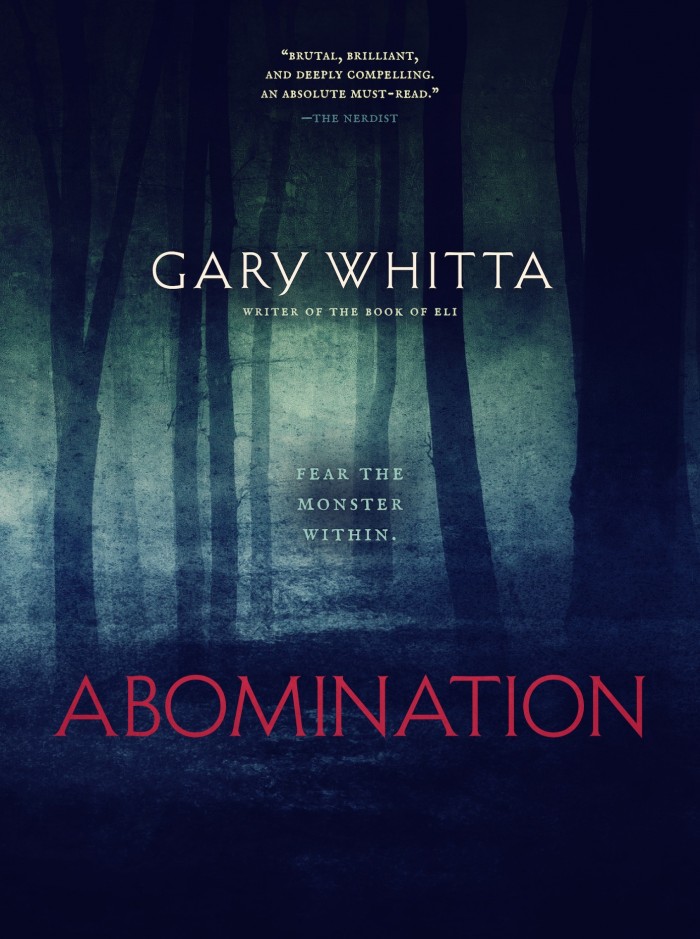 So you're in the middle of working on a Star Wars movie, why'd you decide to take up the huge task of writing a novel?Abomination was finished before I started on Star Wars. Usually I juggle two or three projects in various stages of development at a time but I made a promise to myself that I wouldn't work on or even think about anything else while I was on Star Wars. I saw it as way too important for my attention to it to be diluted by anything else. So once I was done with Star Wars I was able to come back to Abomination and do a final copy-edit and submit it to the publisher.You've done magazines, podcasts, video games, screenplays, comic books, and now a book. Why did you decide to write this monster story as a novel and not one of the other mediums you've previously worked in?
So you're in the middle of working on a Star Wars movie, why'd you decide to take up the huge task of writing a novel?Abomination was finished before I started on Star Wars. Usually I juggle two or three projects in various stages of development at a time but I made a promise to myself that I wouldn't work on or even think about anything else while I was on Star Wars. I saw it as way too important for my attention to it to be diluted by anything else. So once I was done with Star Wars I was able to come back to Abomination and do a final copy-edit and submit it to the publisher.You've done magazines, podcasts, video games, screenplays, comic books, and now a book. Why did you decide to write this monster story as a novel and not one of the other mediums you've previously worked in?
I wanted to try something I hadn't done before and write in a totally different medium, and Abomination suggested itself as a great story to try that with. I thought at first about writing it as a spec screenplay, but there were some things about the story both structurally and in terms of how I wanted to deal with the characters that made me suspect it might be a challenge to fit into a conventional movie-shaped box. Writing it as a novel gave me a lot more free rein to not worry quite so much about certain restrictions that the screenplay version of the story might have. Plus, to be be honest, it's becoming increasingly difficult to sell original material to Hollywood, much less get it made, and in a case of something like this, where there's a period setting and lots of magic and monsters, it just seemed like I had a better shot of getting the story across the finish line and in front of an audience as a book rather than as a movie.
Its interesting that you didn't try to create your own world, as you have done with so many of your previous projects, but instead borrowed real world characters and locations...
Yeah, I didn't want to create just another fictional fantasy kingdom, that's a crowded enough genre as it is. And I love ancient English history, so the idea of setting the story in a real time and place, alongside real historical characters and events, seemed like a really cool way to make the more fantastical elements of the story seem more grounded and real.
It's set in medieval England, during the reign of Alfred the Great, at a time when he was struggling desperately to defend England against Viking invaders. In the end, the only way Alfred was able to protect England was by signing a peace treaty with the Vikings that handed huge chunks of English territory over to them. In Abomination, the Archbishop of Canterbury uncovers an ancient magical text that he believes will give Alfred the power to drive the Vikings out of England permanently, but the magic is something so horrific that Alfred hesitates to use it. The magic gets unleashed anyway and that becomes a greater danger to England than the Vikings themselves. So Alfred calls upon a friend of his, a knight called Wulfric who saved his life during the Viking wars, to deal with the new threat. That's basically the setup and I hesitate to say more than that because the book goes to some dark and, hopefully, unexpected places after that and I'd prefer readers go in and discover those surprises for themselves.
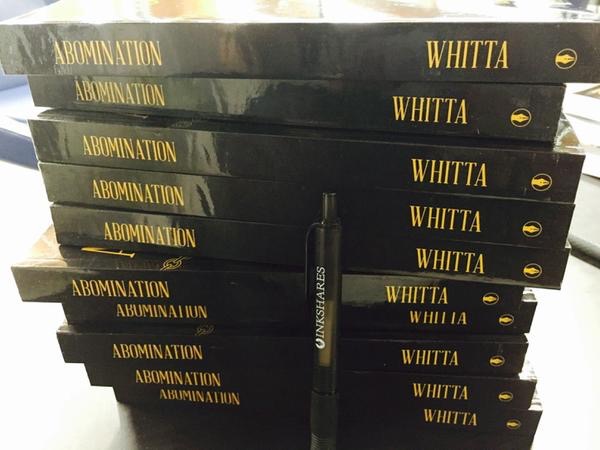 How can people read Abomination? I see this link to inkshares, how is that different than the previous book store marketplace?
How can people read Abomination? I see this link to inkshares, how is that different than the previous book store marketplace?
Inkshares is kind of like Kickstarter for books in that the audience crowdfunds potential projects, and the ones that hit their target get printed and published by Inkshares. It's a really cool setup. And we had a spectacular success there with Abomination. We had 45 days set aside to fund the project, and we hit our goal in something like 20 hours. It was nuts. So it's been really pleasing to see so many people validate the book by backing it just based on a few sample chapters that we put on the funding site. Now that the book's funded it will go into full production – we're desiging the final cover right now – and it should start shipping out to people who ordered it in May. Around that same time it'll also show up on Amazon, iBooks and in book stores.
Why should people back your book now that its 100% funded and getting a release? Is there a benefit to being an early backer, or should they just wait for their preferred format at official release?
Everyone who backed the book before it funded will get a signed copy but we're trying to keep the momentum going so I said I'd sign 1000 more post-funding. I think we're already several hundred copies into that, so if you care about having a book that's been defaced by my hideous child-like scrawl, now's your chance. Also the e-book version will ship out earlier than the hardcover, before it's on Amazon or anyplace else.
Is there any interest in trying to turn Abomination into a movie or television series? Has there been any interest from Hollywood?
Well it's very early but it originally started as a movie idea and if people want to explore that I'd welcome that. But it's not the endgame. The endgame was just getting the story told and in front of an audience, so I'm already happy. When I do something in another medium, like this or the comic I'm doing with Image, it's never intended as a means-to-an-end toward getting a movie made. I know it's often done that way but I find that very cynical.

